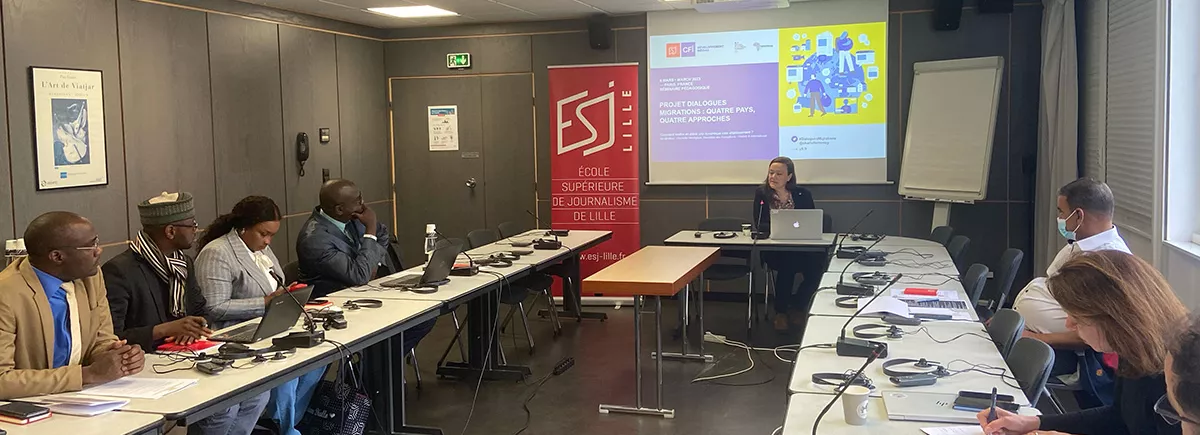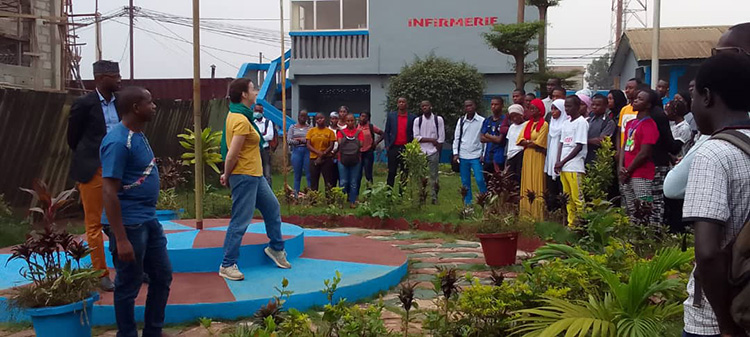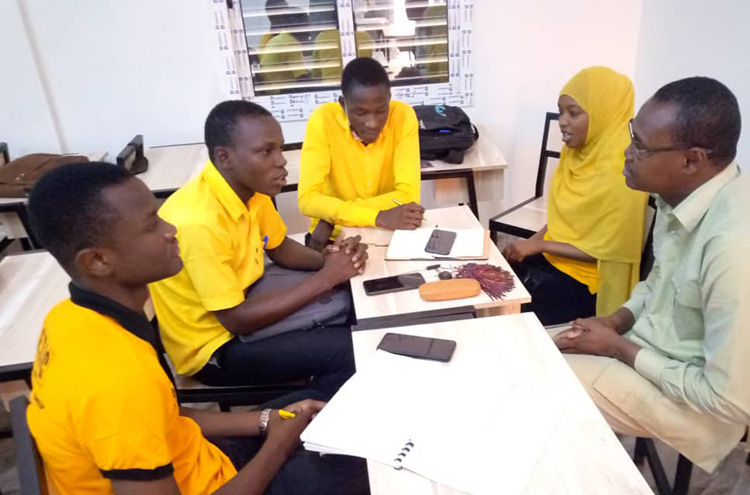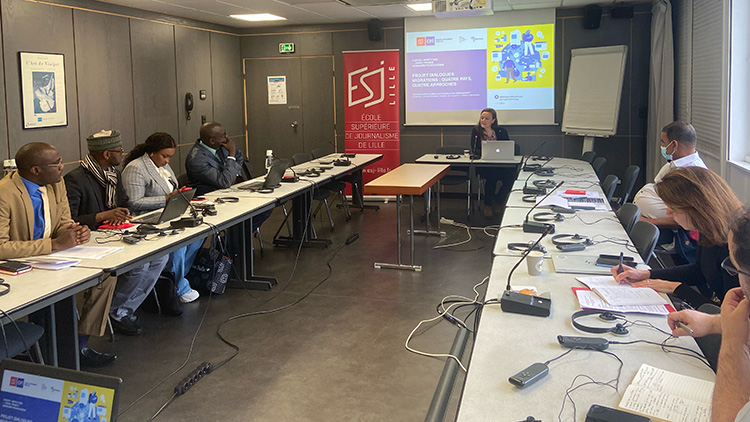
Journalism schools: joint discussions on media coverage of migration
Related project
Dialogues MigrationsThe École Supérieure de Journalisme de Lille (Lille School of Journalism, ESJ) and four counterpart institutions in sub-Saharan Africa are reflecting on how the media covers migration.
How can migration be integrated into the journalism schools' training courses and how can journalists shift away from covering migration in a sensationalist way? These questions lay at the heart of the series of peer discussion seminars led by the ESJ Lille in four schools in sub-Saharan Africa: the Institut Supérieur de l'Information et de la Communication (Higher Institute of Information and Communication, ISIC) in Guinea; the Ecole Supérieure des Sciences de la Communication et des Médias (Advanced School of Communication and Media Sciences, ESSCOM) in Niger; the Ecole Nationale d'Administration, du Journalisme et de la Magistrature (National School of Administration, Journalism and Magistracy, ENAJM) in Mauritania; and the Media Academy for Journalism and Communication (MAJaC) in Gambia.
Rather than just raising the awareness among students as required, teachers from these different schools shared their experiences and discussed the teaching methods and tools that would enable them to apply their lessons in a practical way, outside of the classroom, through the production of content — particularly content created in contact with migrant communities.


Alongside this, a day of discussions and networking brought the four journalism schools together at the "Media and Migration" forum held by CFI in Paris in March 2023. These discussions led teaching teams to develop a Common Ethics Charter, in which seven key principles were outlined:
1. Consider the impact of words and use the correct legal terms;
2. Challenge your own views and question how you are depicting subjects in order to cover them objectively;
3. Rather than covering migration-related events, tell the underlying stories;
4. Provide historical, political and societal context;
5. Produce and distribute information specifically for target audiences (adapt angles and language);
6. Cover every diverse aspect of migration;
7. Restore the standing and sense of dignity of any migrant included in a story and ensure that they have provided their informed consent.



